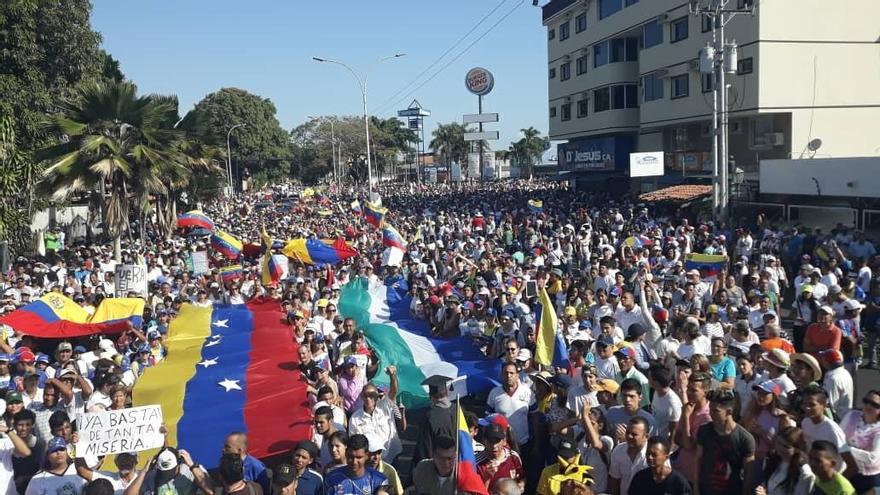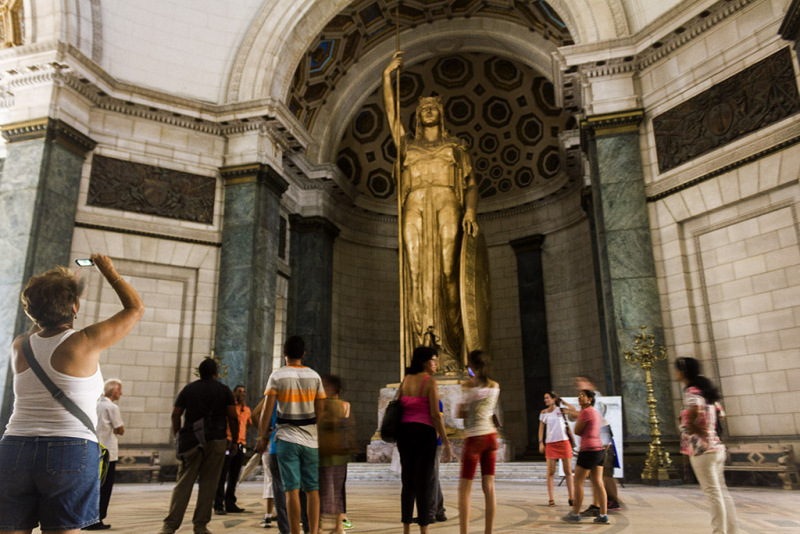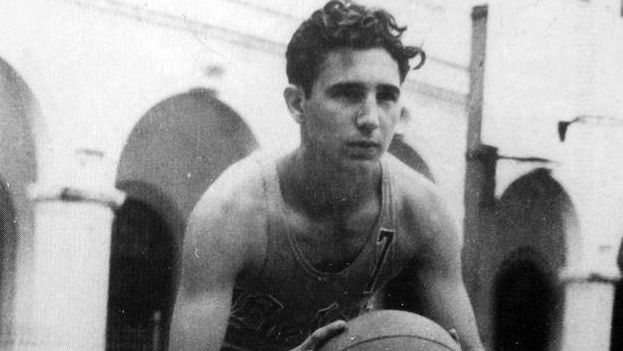
![]() 14ymedio, Ernesto Hernández Busto, 15 March 2019 — Poor Venezuela! After having undertaken what it announced as a radical process of social transformation, a process intended to mark a turning point in Latin American ideology and guarantee a project of social equality baptized as “21st century socialism,” today the country has ended up becoming a despotic compound, where not only are the most basic political rights violated, but one in which a person can barely survive with a minimum of dignity. From the promised emancipation to compulsory destitution; from the dream of the continental left to the prototype of failure, despair and exodus: such is the sad journey of the so-called “Bolivarian Revolution.”
14ymedio, Ernesto Hernández Busto, 15 March 2019 — Poor Venezuela! After having undertaken what it announced as a radical process of social transformation, a process intended to mark a turning point in Latin American ideology and guarantee a project of social equality baptized as “21st century socialism,” today the country has ended up becoming a despotic compound, where not only are the most basic political rights violated, but one in which a person can barely survive with a minimum of dignity. From the promised emancipation to compulsory destitution; from the dream of the continental left to the prototype of failure, despair and exodus: such is the sad journey of the so-called “Bolivarian Revolution.”
Given the serious political and humanitarian situation that Venezuela is going through today, we the undersigned, Cuban intellectuals who reside inside and outside the island, demand that the Cuban Government ackknowlege the evidence of the social and humanitarian disaster, refrain from intervening by any means in the political conflict of that nation, and withdraw its numerous “cooperators,” both civilian and military, who are working in that country. After six decades of a failed revolution, after the collapse of that “Cubazuela” celebrated for years by the Castrochavism, it is time for Cuba to stop exporting or stirring up conflicts in other countries under the pretext of ideological solidarity, and to ensure they can subsist with their own resources, without exploitation or interference of any kind.
Signers of this open letter
Ernesto Hernández Busto, writer; Ladislao Aguado, writer and editor; Carlos A. Aguilera, writer; Janet Batet, curator and art critic; Yoandy Cabrera, academic; María A. Cabrera Arús, academic; Pablo de Cuba Soria, writer and editor; Enrique del Risco, writer and academic; Armando Chaguaceda, political scientist; Paquito D’Rivera, musician, composer and writer; Néstor Díaz de Villegas, writer; Manuel Díaz Martínez, writer; Jorge I. Domínguez-López, writer and journalist; Vicente Echerri, writer; Abilio Estévez, writer; Gerardo Fernández Fe, writer; Alejandro González Acosta, writer and academic; Ginés Gorriz, producer; Kelly M. Grandal, writer; Natacha Herrera, journalist; José Kozer, poet; Boris Larramendi, musician; Felipe Lázaro, writer and editor; Rafael López-Ramos, visual artist; Jacobo Machover, writer and academic; Roberto Madrigal, writer; María Matienzo Puerto, writer and journalist; L. Santiago Méndez Alpízar, writer; Michael H. Miranda, writer and academic; Carlos Alberto Montaner, writer and journalist; Adrián Monzón, artist and producer; Lilliam Moro, writer; Luis Manuel Otero, artist and activist; Amaury Pacheco del Monte, writer and artivist; Geandy Pavón, photographer and visual artist; Gustavo Pérez-Firmat, writer and academic; José Prats Sariol, writer; Legna Rodríguez Iglesias, writer; Alexis Romay, writer; Rolando Sánchez Mejías, writer; Manuel Sosa, writer; Armando Valdés-Zamora, writer and academic; Amir Valle, writer; and Camilo Venegas Yero, writer and journalist.
____________________
The 14ymedio team is committed to serious journalism that reflects the reality of deep Cuba. Thank you for joining us on this long road. We invite you to continue supporting us, but this time by becoming a member of 14ymedio. Together we can continue to transform journalism in Cuba.



